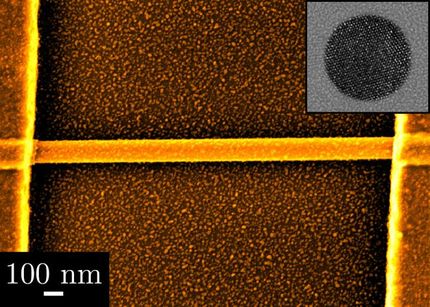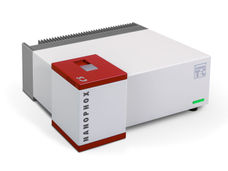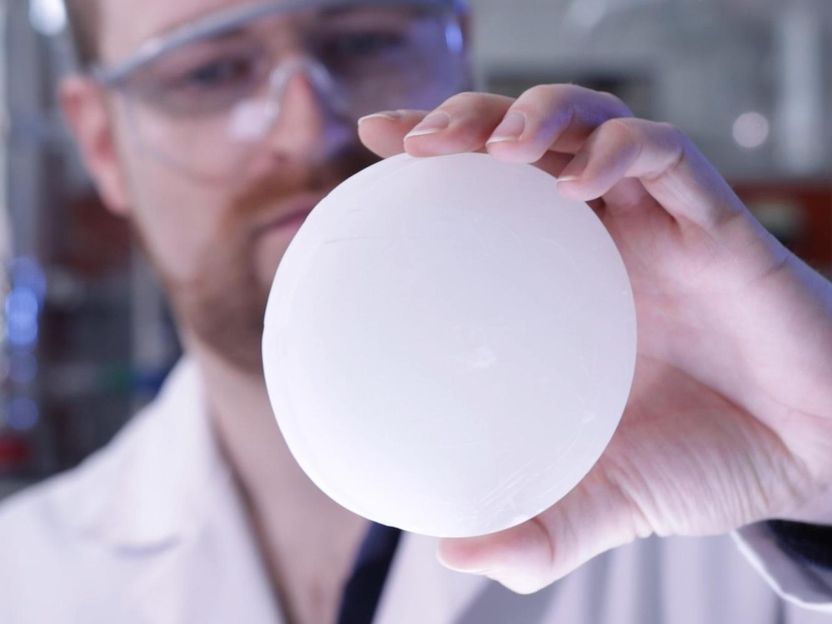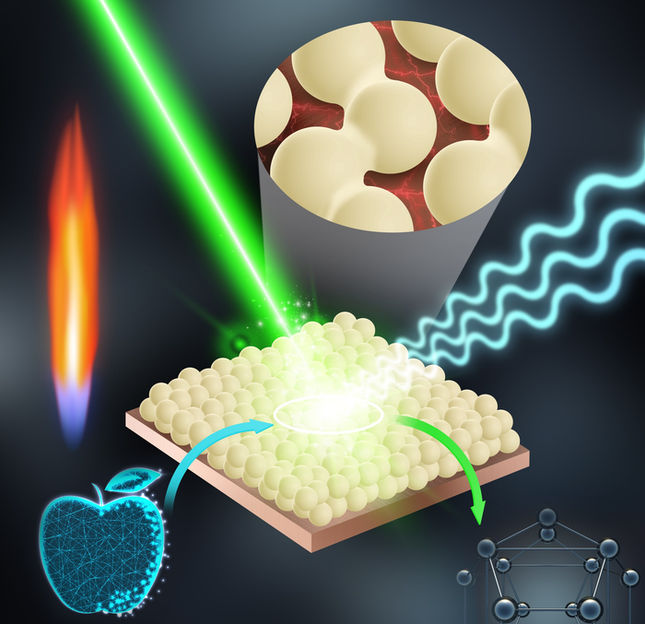New type of biosensor is fast, super-sensitive
Detects one-billionth of a gram in minutes
A whole new class of biosensor that can detect exceptionally small traces of contaminants in liquids in just 40 minutes has been developed by a UNSW-led team of researchers.
Known as a biochemiresistor, it meets a long-standing challenge to create a sensor that is not only super-sensitive to the presence of chemical compounds but responds quickly. It has countless potential uses for detecting drugs, toxins and pesticides for biomedical or environmental analysis.
In a paper published in the prestigious chemistry journal Angewandte Chemie the researchers describe how they successfully tested the new sensor by detecting tiny traces in milk of the veterinary antibiotic enrofloxacin. The journal has singled out the study for attention as a "Very Important Paper". Only 5% of papers published by the journal are so designated.
"Enrofloxacin is an antibiotic used in the agricultural industry that can be transferred to the food chain," notes co-author Scientia Professor Justin Gooding, of the UNSW School of Chemistry and the Australian Centre for Nanomedicine.
"Our biochemiresistor was able to detect enrofloxacin in neat milk in 40 minutes, at level as low as one nanogram in a litre of milk. To put that number in perspective, a nanogram is a billionth of a gram and is the mass of a single cell.
"While that is impressive enough, the sensor is a general concept that can be widely applied across many different fields."
A biosensor is a portable analytical device that uses biological molecules to detect selectively just one compound within a mix of many others. Small biosensors are already in daily use testing the safety of drinking water, for checking diabetic blood-sugar levels and for pregnancy tests
The biochemiresistor uses gold-coated magnetic nanoparticles modified with antibodies that are selective for the chemical constituent – or analyte - of interest. The nanoparticles are dispersed into the sample for analysis and if the analyte is present some of the antibodies detach from the nanoparticles.
Using a magnet, the nanoparticles are then assembled into a film between two electrodes and the electrical resistance is measured. The more analyte is present, the more antibodies leave the nanoparticles and the lower the resistance in the nanoparticle film.
"This new type of biosensor is rapid in response because the magnetic nanoparticle biosensors go and get the analyte rather than the usual approach of waiting for the analyte to find the sensing surface," says Gooding.
"The biochemiresistor is also more sensitive than the usual biosensor because, as the nanoparticles are dispersed throughout the sample, the entire sample is analysed, not just a small portion of the solution."
Other news from the department science
These products might interest you
Most read news
More news from our other portals
See the theme worlds for related content
Topic world Sensor technology
Sensor technology has revolutionized the chemical industry by providing accurate, timely and reliable data across a wide range of processes. From monitoring critical parameters in production lines to early detection of potential malfunctions or hazards, sensors are the silent sentinels that ensure quality, efficiency and safety.

Topic world Sensor technology
Sensor technology has revolutionized the chemical industry by providing accurate, timely and reliable data across a wide range of processes. From monitoring critical parameters in production lines to early detection of potential malfunctions or hazards, sensors are the silent sentinels that ensure quality, efficiency and safety.
































































